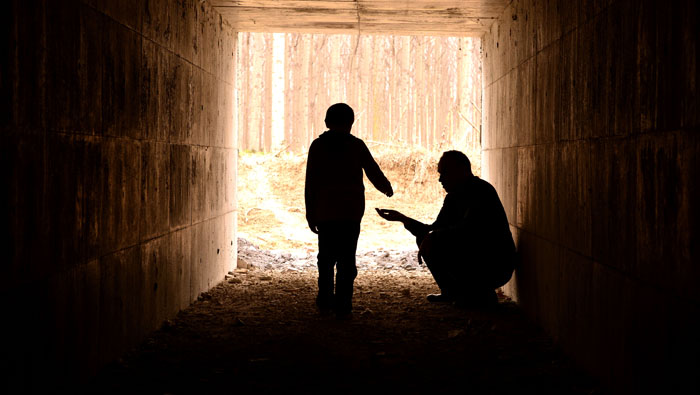
Muscat: The Ministry of Social Development has asked people to be wary of those practicing ‘masked begging’ in the country, and to report such incidents to the authorities concerned.
A practice in which a person obtains money from others by first offering to sell them inexpensive goods, masked begging is one of many forms of begging listed by the ministry, in its efforts to warn locals and residents in the country about such activities.
Speaking on the various forms of begging people need to be on the lookout for, Mohammed bin Saif Al Mamari, the director of social development in Wilayat Muscat, and the supervisor of the region’s anti-begging team, said, “there are several forms of begging, including direct begging, which is outright begging in which the beggar asks for money while repeating certain phrases to arouse the emotions of people, while the second type is called masked begging, which is when the beggar hides behind simple services he provides to people, such as inviting them to buy some commodities such as tissues, incense, rosaries, or attempting to sell them water at locations such as traffic lights.”
“There is also seasonal begging, where begging occurs only during particular festive occasions or seasons, such during the holidays, or around the time of Ramadan,” he said.
“There is also a practice called occasional begging, which is when someone has to beg due to an emergency or urgent need that befalls a person, as well as the concept of a person begging despite being able, which is begging practiced by a person who is able to work and earn, but who prefers getting money through begging.”
According to Article 297 of the Omani Penal Code, a person found begging in mosques, public places, or shops, will be imprisoned for a period between a month and a year, and/or pay a fine ranging from OMR50 to OMR100. The courts have the right to confiscate the money obtained through begging, and those who return to begging will face a prison sentence between six months and two years.
Foreign nationals caught begging could face deportation. However, those who beg because they have no other alternative, according to Al Mamari, shall be exempt from this punishment. Those who use juveniles to help them beg will face a prison sentence of between three months and three years, as well as a fine ranging from OMR50 to OMR100. The penalty is doubled if the person using a juvenile to help him beg is his/her guardian, or someone else charged with the child’s care.
Al Mamari added, “The Ministry of Social Development is striving to address the problem of begging, problem, in cooperation with the concerned authorities such as the Royal Oman Police (ROP), the Ministry of Labour, and the Public Prosecution, and the anti-begging teams are spread out in governorates where the issue is abundant, specifically, the governorates of Muscat, North Al Batinah, Al Buraimi, Al Dhahirah, and Dhofar.”
The Ministry of Social Development has set up a dedicated team in its operations room that deals with reports of begging. It can be reached on 24 994 265, 24 994 266, and 24 994 267.
“When a beggar is caught, he/she is transferred to the nearest police station, and held there for 48 hours in preparation for transfer under the custody of the Public Prosecution, and from there, to the courts,” explained Al Mamari.